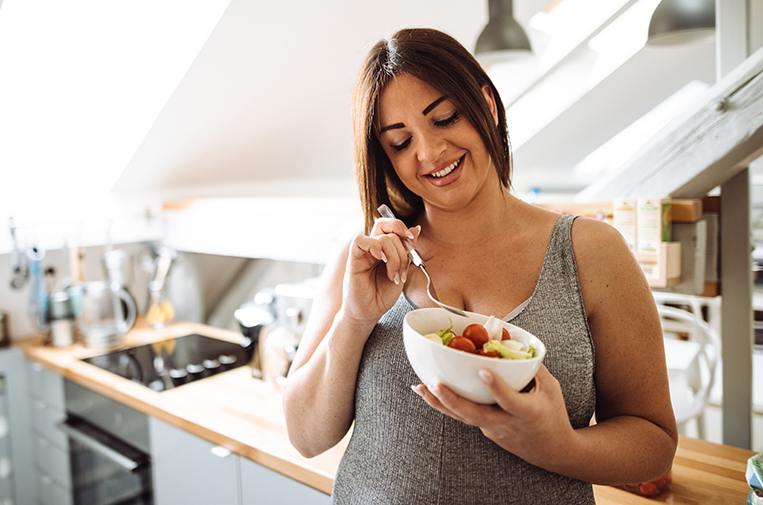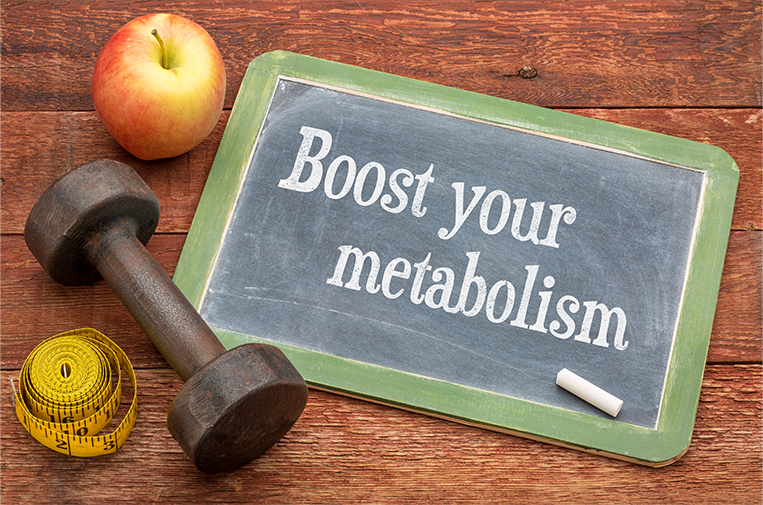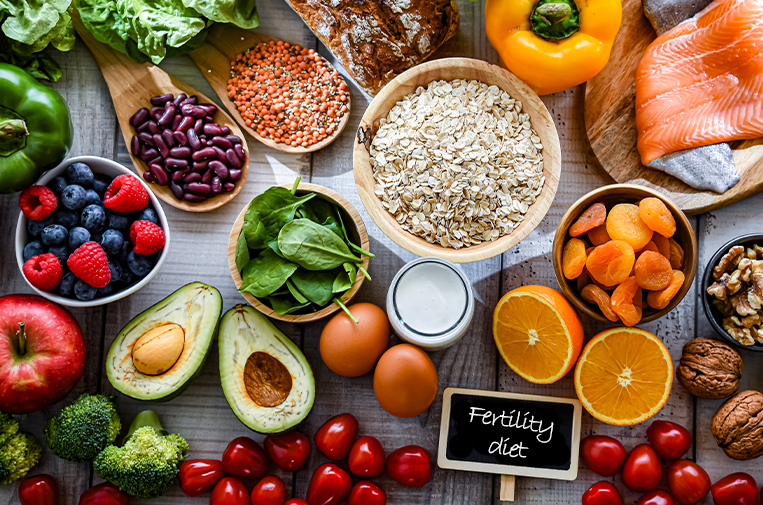Thank goodness you’re pregnant, but you’ll want to adhere to a healthy pregnancy diet to improve your chances of a successful birth and a healthy child
Eating a healthy, balanced diet is important for everyone, but it becomes even more crucial when you’re pregnant. Your body is not only providing nutrients for your health, but also for the growing baby inside of you. The food you eat, which is turned into nutrients during digestion, will play a vital role in your baby’s development and overall health.
First, enhance your chances of getting pregnant with a fertility diet
If you’re planning to get pregnant, it’s important to start paying attention to your diet even before you conceive. This so-called fertility diet will help ensure that you’re getting all the necessary nutrients for a healthy pregnancy. Make an appointment with your doctor or nurse to discuss how your diet needs to change to support a healthy pregnancy.
Do take prenatal vitamins during pregnancy
One important change to make is to start taking prenatal vitamins during pregnancy. They help make sure that you and your baby are getting all the necessary nutrients. Look for a vitamin that contains folic acid, iron, and calcium. Folic acid is essential for the early development of the baby’s brain and spinal cord.
Establishing your pregnancy diet plan
So, what should you eat during pregnancy? The best diet for you and your baby will include lots of fresh fruits, vegetables, and whole grains. You should also include good protein sources like fish, dried beans or peas, and meat. I recommend eating some low-fat dairy products, as well.
If you do not eat dairy foods, you will need to get calcium from other sources. These foods include tofu, sunflower seeds, edamame, kale, broccoli, and other non-dairy items.
Low mercury fish
Fish is a great source of protein and omega-3 fatty acids, which are important for your baby’s brain development. However, it’s important that your pregnancy diet includes low-mercury fish. Salmon, shrimp, pollock, catfish, and canned light tuna are all good choices, as long as you don’t eat too much of them. Bluefish, grouper, halibut, mahi-mahi, and yellowfin tuna are also good options but limit them to one serving per week.
Make food safety part of your pregnancy diet
Pregnant women should be extra careful about avoiding germs in their food during pregnancy. Make sure to wash your hands well with soap and water before handling food. Fully cook fish, chicken, beef, eggs, and other meats. Rinse fresh fruits and vegetables under lots of running water before you eat them. And be sure to wash your hands and anything that touches raw meat or fish with hot soapy water when you’re done preparing food.
Foods to avoid when pregnant
While it’s important to focus on getting enough of the right nutrients in a pregnancy diet, it’s equally important to know certain foods to avoid when pregnant that could harm your baby. For example, some cheeses made from unpasteurized milk or raw or undercooked meat can contain harmful bacteria that could lead to an infection and potentially a miscarriage. You should also avoid high-mercury fish such as shark, swordfish, king mackerel, marlin, and tilefish. These can harm your baby’s brain development.
Alcohol should be avoided completely, as even small amounts could harm your baby. Limit caffeine to one or two cups of coffee per day, and avoid sugary drinks, such as soda and sports drinks. Additionally, taking too much vitamin A (more than 3,000 micrograms or 10,000 international units a day) can lead to birth defects in your baby.
Pregnancy diet = a healthy pregnancy
In summary, eating a healthy, balanced diet is crucial for a healthy pregnancy. Focus on getting plenty of fruits, vegetables, whole grains, and lean protein sources. Avoid foods that could harm your baby and take prenatal vitamins to ensure you’re getting all the necessary nutrients.
Finally, make sure to speak with your doctor or nurse about any concerns you may have about your diet during pregnancy.







